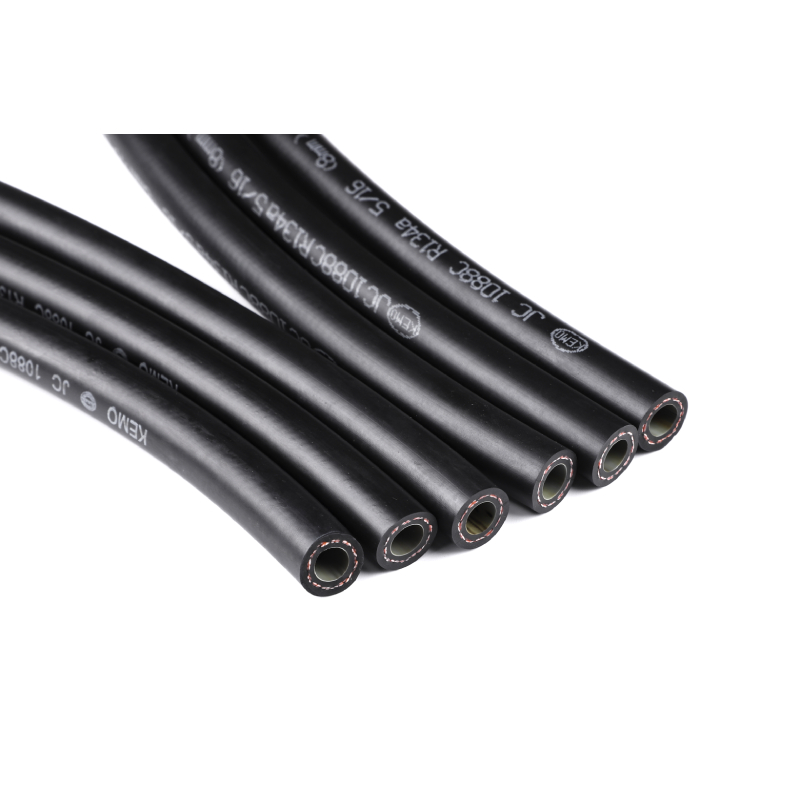high pressure fuel line
Dec . 20, 2024 10:51 Back to list
high pressure fuel line
Understanding High-Pressure Fuel Lines Importance, Function, and Maintenance
High-pressure fuel lines are crucial components in modern internal combustion engines, particularly in diesel and high-performance gasoline engines. These lines, designed to handle significant amounts of pressure, ensure that fuel is delivered efficiently from the tank to the engine's combustion chambers. This article delves into the importance, function, and maintenance of high-pressure fuel lines, elucidating their role in enhancing engine performance and fuel efficiency.
Importance of High-Pressure Fuel Lines
The primary role of high-pressure fuel lines is to transport fuel from the fuel tank to the engine at the necessary pressure for optimal combustion. Modern engines require precise fuel delivery to maximize efficiency, power output, and emissions control. High-pressure lines are made from durable materials, such as stainless steel or reinforced rubber, designed to withstand the extreme conditions present in automotive environments. These materials ensure that the lines do not rupture or degrade over time, which could lead to fuel leaks, engine performance issues, or even catastrophic failure.
Furthermore, as vehicle technology has evolved, fuel systems have become more complex. The introduction of direct fuel injection systems, for instance, requires fuel lines to maintain extremely high pressures, often exceeding 2000 PSI (pounds per square inch). High-pressure fuel lines are thus not merely conduits; they are integral to the efficacy and safety of the entire fuel delivery system.
Function of High-Pressure Fuel Lines
high pressure fuel line

High-pressure fuel lines serve several essential functions in the fuel delivery system. First and foremost, they ensure high fuel flow rates, which is critical for performance in both acceleration and overall engine responsiveness. In direct injection systems, fuel must be injected directly into the combustion chamber at high pressure for the most efficient fuel atomization and combustion. This allows for a more complete burn of the fuel, resulting in improved power output and reduced emissions.
In addition to facilitating high flow rates, these lines are designed to maintain consistent pressure throughout the fuel delivery system. A well-regulated fuel pressure is vital for engine performance, as fluctuations can lead to performance inconsistencies—such as misfires, rough idling, and poor acceleration. Moreover, high-pressure fuel lines often include features such as filters and fuel pressure regulators to help maintain the integrity of the fuel and ensure uniform pressure delivery.
Maintenance of High-Pressure Fuel Lines
Maintaining high-pressure fuel lines is essential for vehicle safety and performance. Regular inspections are critical in identifying potential issues like cracks, leaks, or pressure drops. These inspections should include checking for wear and tear, particularly where the lines connect to fuel injectors, fuel pumps, and the fuel tank. Over time, rubber components can degrade, and metal lines can corrode, leading to leaks that not only compromise performance but can pose fire hazards.
If repairs or replacements are necessary, it is crucial to use OEM (original equipment manufacturer) parts. Aftermarket components may not meet the same quality and durability standards, potentially leading to future issues. Professional mechanics should conduct any repairs or replacements to ensure that all connections are secure and that the system is pressure tested to confirm leak-free operation.
In conclusion, high-pressure fuel lines are vital to the efficient operation of modern engines. They provide the necessary fuel flow at high pressure, enabling optimal combustion and engine performance. Regular maintenance and inspections are critical to preventing issues that can lead to decreased performance or safety risks. By understanding the importance and function of high-pressure fuel lines, vehicle owners can take proactive steps to ensure their engines remain in peak condition.
